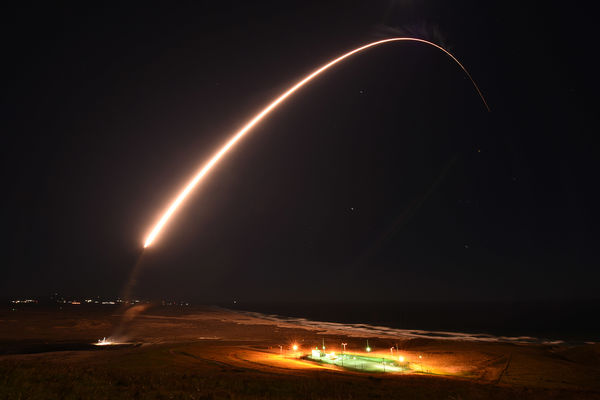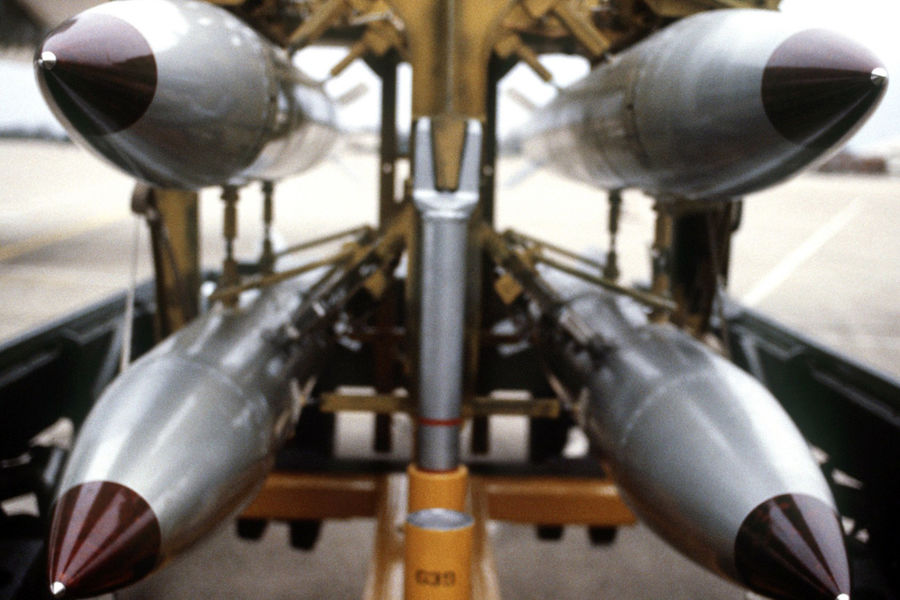Friendship with the US is at stake: can Germany abandon nuclear weapons
What threatens the nuclear potential of Germany
The preservation of nuclear weapons by Germany was suddenly called into question. The fact is that parties with left-wing or similar views are negotiating the creation of a new government – the Social Democrats (SPD), Greens and Free Democrats (FDD), who are known for their anti-war sentiments and rejection of nuclear weapons.
The basing of a nuclear arsenal on the territory of the FRG is part of NATO’s strategy for the joint use of nuclear weapons. The exact number of nuclear warheads on German territory is unknown, but experts estimate their number to be about 20 (B61 hydrogen bombs).
Among the Social Democrats, the nuclear issue was relevant back in the 1950s, when their leaders, skeptical of the transatlantic alliance, dreamed of creating a nuclear-free zone in the center of Europe.
At the same time, in the 1970s, it was under the Social Democratic Chancellor Helmut Schmidt that American medium-range ballistic missiles appeared in Germany, which caused a split in the party.
And so far, the Social Democrats have not come to a consensus on whether the country needs US nuclear weapons. Among the active opponents of its preservation, for example, the head of the SPD faction in the Bundestag Rolf Mützenich. In 2020, he expressed the opinion that nuclear weapons do not enhance Germany’s security.
As a party, the Greens grew out of the anti-war and anti-nuclear movements of the 1960s and 1970s.
In addition to the views of the future government, Germany’s nuclear potential is also threatened by a lack of funds.
Germany will soon have to decide what to do after Panavia Tornado tactical bombers are decommissioned in the second half of the 2020s. The Luftwaffe after that, in fact, will have nothing to use nuclear bombs.
The purchase of new aircraft Eurofighter Typhoon and Boeing F-18, for which the government of Angela Merkel is preparing, requires billions of euros. For a new government that is not prone to aggressive policies, such spending can be questionable, at least in the eyes of the electorate.

How serious is it
According to the Politico edition, Germany’s hypothetical decision to reduce or abandon its nuclear potential may lead to unexpected steps by neighboring allied countries, which are used to relying on the “German umbrella”.
The USA, Poland and the Baltic countries may even consider such a step on the part of the FRG a betrayal. The Balts will then almost certainly ask Washington to place nuclear weapons in their countries. This, in turn, will further exacerbate tensions with Russia and signal to other players of divisions within NATO.
This development of events is being considered by NATO. Alliance Secretary General Jens Stoltenberg said this week that if Germany refuses to deploy nuclear weapons under the new left-wing government, it could be deployed in other European countries.
“Germany can decide whether there should be weapons on its territory, but the alternative is nuclear weapons in other European countries, including to the east of Germany,” he said.
This scenario caused discontent in Moscow. According to Deputy Foreign Minister Alexander Grushko, Stoltenberg’s statement testifies that the NATO-Russia fundamental act no longer exists for NATO, since it states that the alliance will not deploy nuclear weapons on the territory of new members and will refuse to additionally deploy significant military forces there.
The head of the Russian delegation at the Vienna talks, Konstantin Gavrilov, in a conversation with RIA Novosti, said that the NATO leadership “has lost touch with reality.” “Instead of responding to Russia’s call for de-escalation of tensions in Europe, the chief official of the North Atlantic Alliance declares that NATO will move even closer to the borders of our country in nuclear terms,” he said indignantly.
Is such a development of events possible
At the moment, it is not entirely clear what place the issue of nuclear weapons occupies in the current negotiations of the SPD, the SvDG and the Greens. The joint statement of the parties only says that the parties will take a balanced and well-reasoned decision on this topic.
Artem Sokolov, a researcher at the Center for European Studies of the IMI MGIMO, in a commentary to Gazeta.Ru, expressed the opinion that for the Social Democrats who won the parliamentary elections, the topic of nuclear weapons is not really relevant now.
He also called a scenario unlikely in which at least the Greens would insist on the withdrawal of American nuclear weapons from Germany.
“For this party, such a demand is a vestige of the Cold War era, and it does not intend to turn it into a matter of principle in coalition negotiations today. A substantive discussion about the withdrawal of US nuclear weapons from Germany requires a revision of the entire German transatlantic consensus, for which Berlin is not ready now, ”the analyst is sure.
German political scientist Alexander Rahr, in a conversation with Gazeta.Ru, noted that it is still difficult to predict what decision the new ruling coalition will take.
“Even if the parties mentioned come to power and the Social Democrats put this issue on the agenda, there will still be a very tough discussion among the elites. There are a number of people, for example, the head of the Munich Security Conference Wolfgang Ischinger and the generals, who believe that in this case Germany will lose its status as America’s friend. And secondly, what this will lead to is that atomic bombs will end up on the territory of Poland, which makes it a more important ally than Germany. This cannot be allowed. There will be a lot of pressure on the government, and it will understand that everything is not so simple, ”he said.

No comments:
Post a Comment